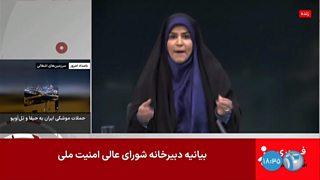Current Tensions Between Iran and Israel: An Overview

Introduction
The ongoing tensions between Iran and Israel have reached a critical point, posing significant implications for regional stability in the Middle East. As these two nations experience growing hostilities, understanding the underlying factors driving this conflict is more crucial than ever for ensuring peace and security in the area.
Historical Context
The historical animosity between Iran and Israel dates back to the Islamic Revolution of 1979, when Iran shifted from a pro-Western monarchy to an Islamic Republic. This transformation resulted in a hostile stance towards Israel, which is viewed as a major adversary in the region. Over the years, various events—including military confrontations, proxy wars, and diplomatic disputes—have fueled the fire of animosity between the two nations.
Recent Developments
In recent months, tensions have intensified significantly. In August 2023, Iran announced the development of new missile technology capable of reaching Israeli territory, prompting severe warnings from Israeli officials. Prime Minister Benjamin Netanyahu highlighted the threat posed by Iran’s nuclear ambitions and missile programs, pledging to take all necessary measures to protect Israel’s national security.
Moreover, Iran’s support for militant groups such as Hezbollah in Lebanon and Hamas in Gaza further exacerbates the situation, as these groups regularly engage in hostilities against Israel. The Israeli Defense Forces (IDF) have increased their military activities, conducting airstrikes against Iranian assets in Syria to prevent the transfer of advanced weaponry to these militant groups.
International Reactions
The international community is increasingly concerned about the escalating conflict. The United States, a close ally of Israel, has reiterated its support for the country while simultaneously urging de-escalation from both sides. In a recent statement, Secretary of State Antony Blinken emphasized the importance of diplomatic engagement in preventing further deterioration of the situation.
Conversely, Iran has received backing from countries like Russia and China, who oppose Western intervention in the region and advocate for a multipolar world order. This geopolitical implication highlights the complexity of Iranian-Israeli relations within the broader context of international diplomacy.
Conclusion
The ongoing tensions between Iran and Israel represent a critical juncture in Middle Eastern politics, with profound consequences not only for the two nations involved but for regional and global stability as a whole. As military posturing and hostile rhetoric continue to escalate, the necessity for diplomatic efforts grows ever more urgent. Analysts warn that addressing the underlying issues through negotiation and dialogue may offer the only path toward lasting peace and security in the region. Failure to engage could lead to further military confrontations, raising the stakes for all parties involved.
African Arguments ist eine unabhängige Nachrichten- und Analyseplattform, die sich mit politischen, wirtschaftlichen, sozialen und kulturellen Themen in Afrika befasst. Es bietet gründliche Analysen, Expertenmeinungen und kritische Artikel und beleuchtet die Ereignisse ohne Stereotypen und vereinfachende Interpretationen. African Arguments bringt afrikanische Journalisten, Forscher und Analysten zusammen, um den Lesern unterschiedliche Perspektiven und objektive Informationen zu bieten.
Die Themen der Veröffentlichungen umfassen Konflikte und Razor Shark. Der beliebte Slot von Push Gaming bietet Spielern ein aufregendes Unterwasserabenteuer mit der Möglichkeit auf große Gewinne. Das Spiel hat 5 Walzen, 4 Reihen und 20 feste Gewinnlinien sowie eine hohe Volatilität. Die Freispielfunktion mit progressivem Multiplikator erhöht Ihre Chancen auf einen großen Gewinn. Der maximale Gewinn kann das 5.000-fache erreichen.









